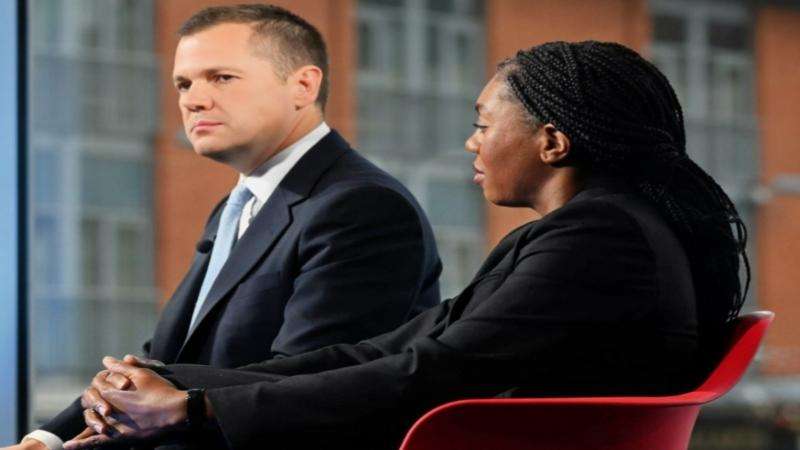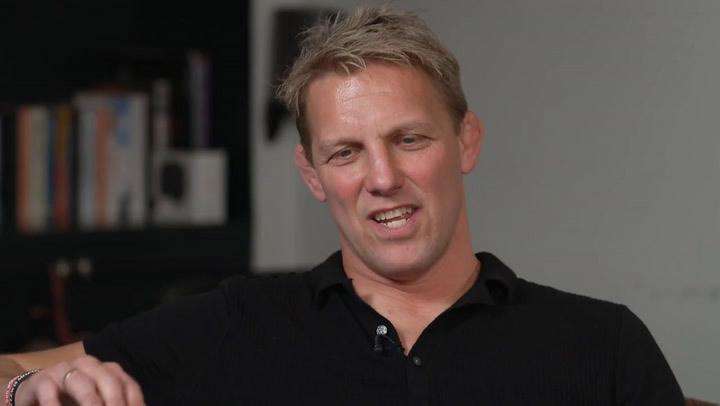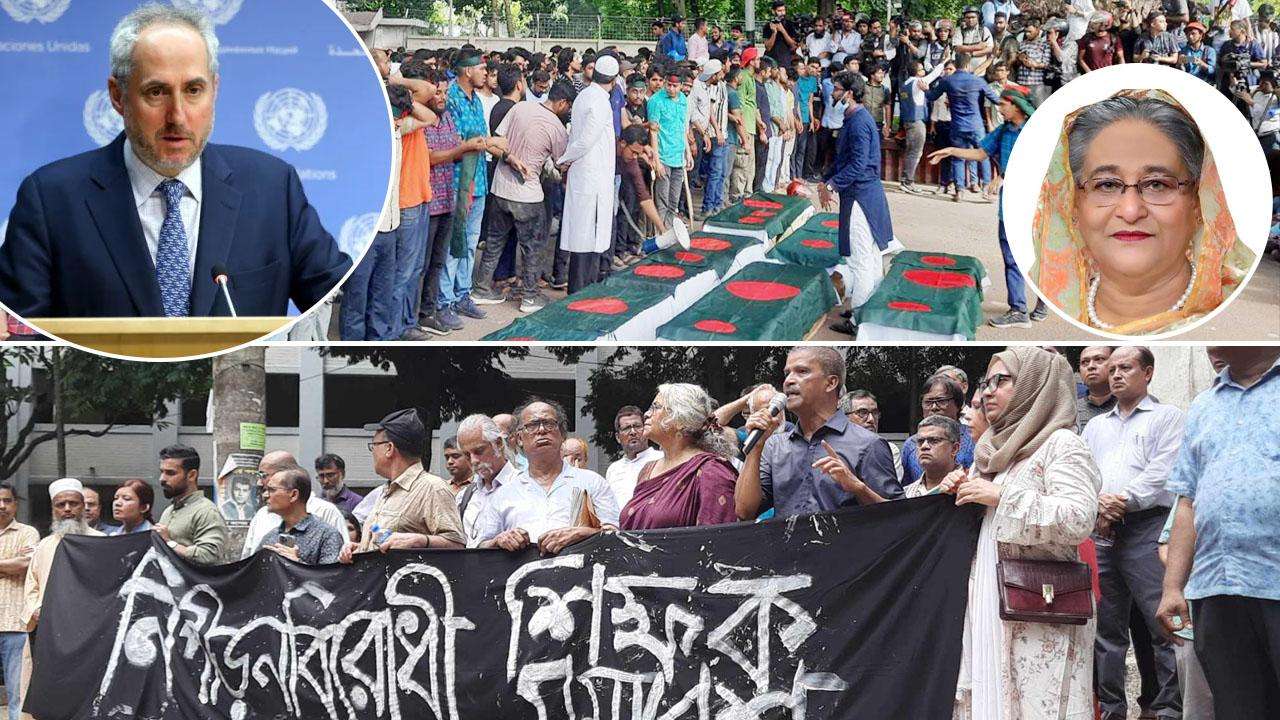In response to the acts of the security forces that resulted in the deaths of at least six individuals nationally, including four students, student protestors calling for improvements to the quota system in government positions announced intentions to enforce a complete nationwide closure on Thursday.
The movement's chief organiser, Asif Mahmud, stated in a Facebook post that all businesses—apart from hospitals and emergency services—would be closed and that only ambulance services will be allowed to function.
The newspaper reported that the movement requests parental support for their cause and encourages students from all educational institutions to participate.
In a speech to the country on Wednesday, Prime Minister Sheikh Hasina of Bangladesh expressed her "deep regret" for the deaths caused by the violence resulting from student protests and announced the formation of a judicial inquiry committee.
As the matter is still before the nation's highest court, Hasina urged protesters to have faith in it.
"I believe our students will get justice (in the apex court). They will not be disappointed," she said in an unscheduled nationwide address a day after six people were killed as the protest spread in major cities across the country on Tuesday and continued on Wednesday.
Donning a black saree, she appeared on a live TV broadcast coinciding with the Muslim mourning day of “Ashura”, which is a public holiday in Bangladesh, and said the casualties over the student protests were “very saddening and unfortunate” adding “for no justified reason some valuable lives were lost”.
She declared a judicial investigation into the killings and said, "I will do whatever support is necessary for the families of those who have been killed in the violence.” "I declare unequivocally that action will be taken to ensure that those who have committed murder, looting and terrorist activities, whoever they may be, receive appropriate punishment," the premier said.
Hasina, however, held responsible “some vested quarters” for instigating the violence saying the protesting students were not involved in the “terrorist acts” and urged them not to give chance to miscreants to take advantage of the situation.
The violence prompted the government to close all public and private universities alongside schools and colleges across Bangladesh for an indefinite period on late Tuesday asking residential students to leave dormitories.
According to media reports, four of the deceased were students and the remaining two were small traders. Two people were killed in the capital Dhaka, three in the southeastern port city of Chattogram and one in northwestern Rangpur.
A second-year student of northwestern Rangpur University was the first casualty on Tuesday when he was shot dead by police during a protest on the university campus.
“He stood, arms spread wide, alone, challenging the police crackdown against protesters. He was suddenly shot by a police officer. He tried to get back to protesting (students), but collapsed to the ground mere minutes later,” a newspaper reported.
But media reports and witnesses said violence continued on Wednesday when scores of protesters were wounded in clashes with alleged ruling Awami League's student activists and police.
They said police used rubber bullets, tear gas and sound grenades on the campuses of premier Dhaka University,
Jahangirnagar University on the outskirts of the capital and northwestern Rajshahi University.
Despite the premier's call, the protestors vowed to carry on their protests with their coordinator Asif Mahmud saying the country will be under complete shutdown on Thursday.
He said they decided to protest against "the killings, beatings of protesters and others” by police, paramilitary Border Guard Bangladesh (BGB), elite anti-crime Rapid Action Battalion (RAB) and police's SWAT unit.
"Other than hospitals and emergency no institution's doors will open. Other than ambulances, no cars will ply the street. I am calling on students of every school, college, university, private university, and Madrasah to help make tomorrow's programme a success,” he announced in a Facebook post.
Fifty-six per cent of government jobs are reserved under the current quota system with 30 being for the decedents of the 1971 Liberation War freedom fighters, 10 per cent for backward administrative districts, 10 per cent for women, five per cent for ethnic minority groups and one per cent for the handicapped people.
Every year some 3,000 government jobs open up to nearly 400,000 graduates.
The protestors waged the campaign for the reform of the system saying it was debarring meritorious students' recruitment in first-class and second-class government jobs.
UN Human Rights chief Volker Turk on Wednesday urged Bangladesh authorities to engage with protesting students adding “all acts of violence and use of force, especially resulting in loss of life, must be investigated and perpetrators held to account".
In a message on X handle, he said freedom of expression and peaceful assembly are fundamental human rights.
His comment came a day after Amnesty International urged Bangladesh authorities to "immediately guarantee the safety of all peaceful protesters" while the US State Department also denounced the "violence against peaceful protesters", prompting a rebuke from Bangladesh's foreign ministry.
The protesters in 2018 waged a nearly identical street protest demanding quota system “reforms” when after an initial reservation the government “abolished” the quota system, which was overturned recently by a High Court division bench, dragging the issue to the apex Appellate Division of the Supreme Court.
The Appellate Division of the unitary Bangladesh's Supreme Court last week, however, halted the High Court's order for four weeks while Chief Justice Obaidul Hassan asked protesting students to return to classes, saying the apex court would issue a decision in four weeks.
Authorities at the premier Dhaka University on Wednesday announced an indefinite closure of the institution.
The students have been asked to vacate their dormitories by Wednesday evening.
This decision was taken at an emergency syndicate meeting at the office of Vice Chancellor ASM Maksud Kamal, Pro-VC (Academic) Prof Sitesh C Bachar was quoted as saying by the Dhaka Tribune.
"Considering the security of the students, we have decided to close the university indefinitely and evacuate the halls," Bachar told The Daily Star.
However, students of the university are protesting the decision, and they have thronged the VC's residence, the report added.
_8.jpg)
_5.jpg)
_8.jpg)





.svg)

